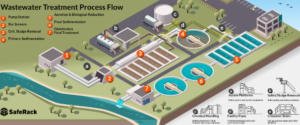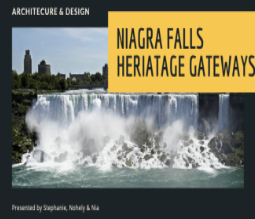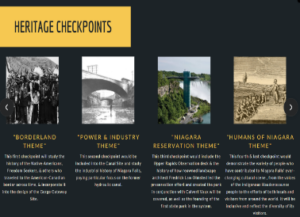At the start of Writing for Engineers, I didn’t know much about the course outline and objectives. I knew this class taught us the foundation of technical writing, and would enhance our writing skills in evaluating and analyzing. I never put much thought into the importance of writing in engineering, since I always considered them separate matters. However, my opinion has changed through my completion of the course, and I can now say that writing serves such a critical importance in engineering and all careers.
Throughout the semester, I have learned several new writing strategies and practices that I wasn’t exposed to before. In previous English classes, I used a lot of the strategies that I’ve learned throughout high school, and was pretty confident in my writing abilities. I would later change a lot of these ingrained habits when I began this course, as I was exposed to different writing strategies, including locating appropriate sources, paraphrasing, and evaluating. I wasn’t expecting it, but while completing the multiple course assignments, I gained lots of experience in research, teamwork, and self-assessment. It’s practices such as these that truly enhanced my writing abilities, as I had never put much thought into peer review and reflecting on my work. Getting the appropriate feedback from my peers, and also asking myself questions about my writing skills, gave me a lot more confidence and I was able to make corrections in my work. I will now continue to search for this in future projects and assignments, as reflection is in my opinion the best way to grow and expand your skills.
Of the many useful writing strategies that I’ve learned through this course, I truly appreciated how not one writing style was considered superior over another. Through peer review and the multiple discussion posts, I was able to see the differences in writing through my classmates. Although I had been used to only writing in essay format, I grew more comfortable adopting different styles of writing, through paraphrasing, bullet-format, and inclusion of charts, tables, and pictures. I found these to be very beneficial for the writer, but also the reader as it alleviates some of the pressure and makes for an easier reading experience. I definitely would recommend these strategies to everyone, as I have received positive feedback through peer review and discussion.
For our first major writing assignment, the Technical Description, we had to choose a process or object and describe it in detail. I decided to discuss the wastewater treatment plant process. For this assignment, I followed the standard essay format as I had always done. The only expectation was that I added pictures to help aid the reader in understanding. As this was a very lengthy process to break down, I thought it would be better to follow it step-by-step. For each of the eight stages of the treatment plant, I discussed the role that it played in discharging clean water back into the environment, and how the debris is treated.
During peer review, I received very helpful feedback for my work. According to my peers, they found my writing to be very clear and effective, and offered a smooth reading experience. It was my peers who actually suggested that I include pictures in my paper, as this would take the attention off the technical side and offer more of a visual of the process. Another piece of advice for this paper would be to focus solely on the process of wastewater treatment, and less on the other areas of pollution. Since this writing assignment called for a description of a process, I found this feedback to be very valid and effective because it made me realize that I have a tendency to veer off course in my writing. But the most important feedback that I received was to include simpler formatting, such as subtitles or bullet points. I definitely agree that this would have allowed for an easier writing experience, and I took all of these suggestions with me into future assignments.

This picture above was included in my Technical Description. I added this picture after receiving feedback from my peers, but I would have made some additional changes to my paper. I think since this process is so lengthy, it would have been better to add bullet point format for each of the stages. For example, in my paper, I write “these are usually household items, such as paper, plastic, metals that are found in flowing water from the sewer system. The materials removed here are pressed and disposed of in a landfill. The purpose of this stage is to prevent damage to the pumps and other equipment, and to ease the process of water flow later in the plant.” I think adding bullet points to specify which items are removed from each stage, and defining the purpose would have been better if I had used this method. It would have been easier to remember and process this information, since it would help separate the two matters.
Another writing concept introduced to us that impacted my writing was purpose, author, and audience. In the past, I rarely took these concepts into consideration in my writing. I never questioned why someone would bother reading my work and who my target audience was. But in the writing process of the Technical Description, I had to ask myself these questions. I needed to find an audience to address, and give them a purpose for investing their time into me. I also had to look at what benefited me, the author, as well as the reader. I usually find those two to go hand-in-hand, what benefits the author tends to benefit the reader.
At the beginning of the assignment, we were asked to find a target audience, someone who would benefit from reading your work. Initially, I thought a practical target audience would be a wastewater treatment plant worker. I thought they would find my work most beneficial at first, but then after peer review, I realized that this was wrong. I decided to center my purpose around explaining to someone the fundamental steps of the treatment plant. Explaining this process to someone who is inexperienced, but is seeking knowledge or a career in environmental engineering or science would be the best route.
I began my paper with this purpose in mind. I had to create an outline of what I wanted my paper to look like, how I would be able to explain a very complex process to someone with no experience in this subject. I began my paper with a brief history of wastewater treatment, and how the process has evolved to where it is today. I wrote the following in my introduction:
“Wastewater treatment plants, and the process of treating sewage, is what allows the public to have clean water. Although thought to be a fairly new process, the process of filtering and purifying water has been around for thousands of years, since the beginning of civilization. However today with increased populations and human activity, including industrialization and increased use of water, pollution has had a major effect on our environment, including our safe drinking water.”
Once I reflected on my final copy of my Technical Description, I realized that I should have made some changes prior. Some of these changes would include:
- Discussing less of the history of wastewater treatment and focus solely on the process
- Discuss more of the importance of clean water and the role it plays in societal and environmental health
- Use simpler language on the more technical aspects of the process, and break down the mechanical working of the process
Looking at my assignments from the perspective of the audience has helped me outline how I want my work constructed. Learning this strategy has helped me with my writing immensely, and I know now how to set the tone of my writing. If I am describing a process or any complex topic, it would be to my benefit, and the reader’s benefit, to express my ideas in a clear and simple manner. If I was writing to someone who was more experienced, as you will see in my other writing assignments, I would delve deeper into the technical points of the topic and provide more detailed information.
Once we completed the reflections of our first writing assignment, we then went on to work on the Technical Report. In this paper, we had to write a report on a topic within our field of study. Since I am a civil engineering student, with a specialization in environmental engineering and wastewater resources, I was inspired to write about how water pollution affects the food chain. In this assignment, I went for a traditional essay format, while also incorporating the techniques that I learned in class. I added more pictures, included bullet points, and more research and citations to support my topic.
I found this assignment to be most assistive in learning the importance of self-assessment and peer review. We did multiple sessions where our fellow classmates critiqued our work and provided insightful feedback.
Similar to the first writing assignment, I gave a brief history of water pollution, and where society stands in the fight for safer human and environmental health. However, in this writing assignment, I had a harder time organizing my report. During peer review, I had difficulty narrowing down my target audience. But through the feedback that I received, I was able to reflect on my reader’s questions and come to a conclusion that farmers and commercial fishermen would benefit most from my report. I wrote the following in my introduction:
“With the topic of the environment becoming increasingly more concerning and significant, people across all generations are finding ways to be more sustainable and conscious of their decisions regarding the environment. We can see the risk to our ecosystems, human health, and quality of life. Educating those most at risk, such as business people, commercial fishers, and farmers, on the threat to our food chain is key to making change.”
Because the Technical Report was more of a commitment than any previous writing assignments, I felt the need to reflect on my past writing habits and mistakes so as not to carry them over into this report. I think the feedback received, such as “statistical data would have been helpful,” or to “add more quotes later on” helped identify my weaknesses and correct them by pursuing more research and evidence to support my claims. I also received guidance from my professor through student conferences. Here, I was able to reflect on my draft and discuss how I wanted my paper to be organized. It was collaboration such as this that led to the final draft of my report, and I certainly felt more confident in my discussion of water pollution.
I felt that because this assignment was more complicated than the first, the direction of the course was very smooth. I appreciated that we began this course very slowly, with discussion posts and the Technical Description, then moving on to more collaborative and complex assignments like the Technical Report and RFP group assignment. When we began the group project, it felt as if I had completed the proper stepping stones to prepare myself for the RFP assignment. This project would be the most beneficial and demanding assignment throughout the semester because of how collaborative it was, and the amount of planning that went into it.
My group decided to respond to a RFP that proposed the idea of creating three public gateways with heritage checkpoints along them in downtown Niagara Falls to connect the state park to the city. This proposal was mutually decided upon, and we had a general consensus of what part of the project we would each contribute. The best practices that I took away from this project was open communication with my team members, and the importance of always checking in on them. There were times when I found it to be difficult to communicate what I wanted out of the project, including organization, format, and creativity in the PowerPoint. My group overcame a lot of these obstacles by sharing exactly what we wanted from our members. The final product of our presentation was everything we hoped it would be. I included some of the work below:


Overall, I found this project to be the most valuable experience from the class, as I gained a lot of skills in communication and collaboration, while also exposing me to the reality of group work. I learned that this is not always going to be a smooth and easy task and that the skills you learn from each experience will only help you in your future endeavors.
Through all of the assignments, we faced many challenges, but were gifted with several learning outcomes. While I applied some of my learning outcomes more than others, each provided me with skills that I will continue to expand as I continue my writing journey. These were my following experiences with each of them:
- Acknowledge your and others’ range of linguistic differences as resources, and draw on those resources to develop rhetorical sensibility
- This was one of the initial learning outcomes that I utilized throughout the semester. I took all of the constructive criticism of my work from others and applied them to my future projects. I truly valued my peers’ opinion of my writing, whether that be during peer review or group projects ,and I always viewed their criticism as an opportunity to learn and grow.
- Enhance strategies for reading, drafting, revising, editing, and self-assessment
- I noticed the biggest change in my writing came from this learning outcome. My ability to critique my writing and reflect on my work, granted me the biggest benefit of all the learning outcomes, in my opinion. I had little experience in drafting and revising prior to this course, and was fortunate enough to get the opportunity to question my writing strategies and improve them step-by-step.
- Develop and engage in the collaborative and social aspects of writing processes
- I definitely learned most from this learning outcome, as I had no experience prior to this class in collaborating on the writing process. Learning how to work in a group, through the RFP project, peer reviews, and discussions, was very rewarding and I now have more confidence in my ability to be a leader in a group. I am also now well prepared to handle group situations in the future, and feel more comfortable collaborating with other group members.
Overall, I found this class to be unlike any other that I’ve taken. This is the first time where I am able to identify exactly what I’ve gained out of a course, and be able to address that through writing. I was certainly surprised with the direction that this course took, and am appreciative for that because I gained valuable skills that I didn’t expect to learn. I plan to continue to build upon these skills further, and apply them to future group assignments and projects. Thank you all so much for following my journey through this course, and would encourage other promising engineering students to take the course as well.

